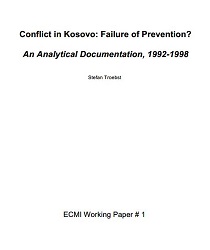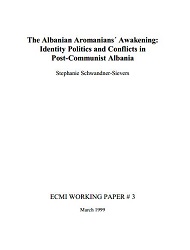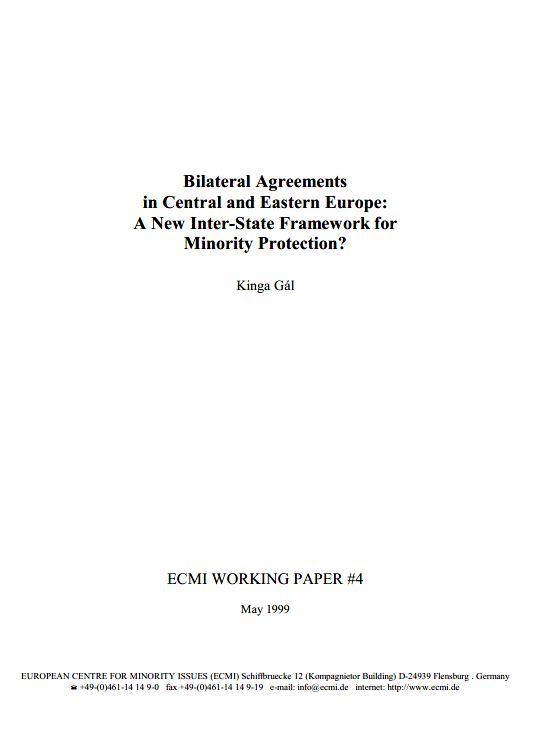
Conflict in Kosovo: Failure of Prevention? An Analytical Documentation, 1992-1998
Conflict in Kosovo: Failure of Prevention? An Analytical Documentation, 1992-1998
Keywords: Dayton Agreement; ethnic cleansing; UN and Kosovo; High Representative in Kosovo; European Union and Kosovo; 1999 NATO Intervention;
The editorial deadline for this documentation was 9 March 1998--the day the Contact Group on Bosnia-Herzegovina emerged as the main international forum to deal with the Kosovo problem in its »new” and much more pressing form. The term Kosovo refers to the administrative unit in the South-western corner of the Republic of Serbia within the Federal Republic of Yugoslavia (FRY) – a territory of 10,887 square kilometres called Kosova or Kosova dhe Rrafshi i Dukagjinit in Albanian and Kosovo or Kosovo-Metohija (abbreviated Kosmet) in Serbian. The author is indebted to colleagues in three institutions and networks dealing with the Kosovo conflict he has been or is part of: (1) The »International Commission on the Balkans,” founded in 1995 by the Carnegie Endowment for International Peace and the Aspen Institute Berlin; (2) a group of contributors to a »Kosovo Policy Study” in the framework of the Conflict Prevention Network of Directorate General 1A of the European Commission at Brussels set up in 1997; and (3), a group of intellectuals from Prishtina and Belgrade as well as external experts brought together for the first time in 1996 by the Bertelsmann Science Foundation and the Research Group on European Affairs at the Centre for Applied Politics of the Ludwig-Maximilian University of Munich. Farimah Daftary, Kinga Gál, Priit Järve, and William McKinney of ECMI have been supportive—and creative--in searching for documents and materials
More...

